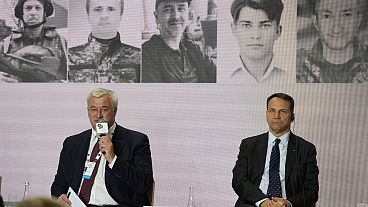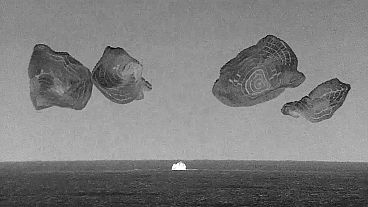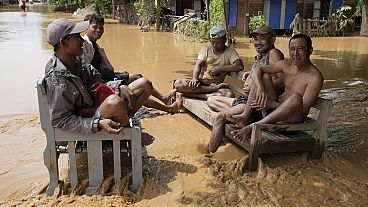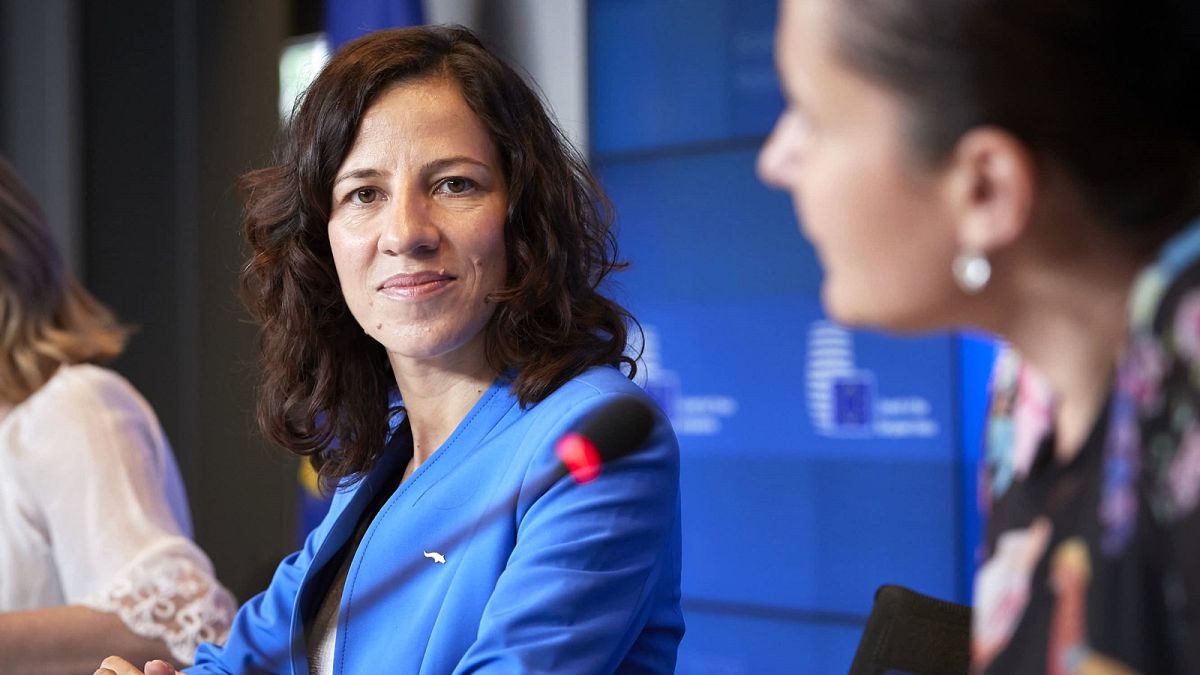Romania changed its choice for Commissioner in response to calls by von der Leyen for gender parity in the next cabinet. Bucharest is vying for an economic portfolio and has nominated a former minister for EU funds and secretary of state for public procurement, newly-elected MEP Roxana Mînzatu.
The growth towards far-right nationalism is leading to a reversal in gender equality and the fight against gender-based violence, Romania’s pick for EU Commissioner has told Euronews.
The Romanian government this week changed its candidate for Commissioner, designating newly-elected MEP Roxana Mînzatu, in line with Commission President Ursula von der Leyen’s plan for gender parity within her cabinet.
Bucharest is also hopeful the move will improve the country’s chances of receiving a more influential cabinet portfolio.
Mînzatu is a former minister for European funds and secretary of state with a focus on public procurement.
Romanian Prime Minister Marcel Ciolacu initially chose Social Democrat MEP Victor Negrescu but acceded to the policy suggested by President von der Leyen.
Bucharest – like several other EU capitals - has its eyes on an economic portfolio and by sending a woman of demonstrable competence and experience Romania has indeed likely increased its chances of being awarded a more coveted, influential cabinet position.
“We're looking at the competitiveness of the European Union and, all the other, tasks and objectives that lie ahead, because we are obviously in a moment where in the global competition, Europe needs to do something, needs to industrialize,” she told Euronews.
“I have worked in procurement, we have to look at how we can use public procurement to support the strategic autonomy of Europe and how we can support our ecosystem of SMEs, of local producers, of European producers,” she said.
Von der Leyen requested member states once again send the names of a woman and a man for her to arrange her cabinet based on experience and capability, while prioritising overall gender balance.
From the outgoing Commission, out of 27, there are 12 women commissioners.
So far, only around a third of countries have obliged to send a woman for the next Commission, including Belgium, Spain and Bulgaria.
Mînzatu says such policies are necessary as gender equality isn’t happening ‘organically’.
Moreover, she fears the current febrile atmosphere gripping politics in Europe – particularly coinciding with the rise of far-right parties is leading to a reversal of women's rights.
“I am a supporter of a fair, balanced representation of men and women in public life. And this is not happening organically, almost anywhere," Mînzatu said.
“So I am a supporter of a type of tool in which you have this request to have, both female and male competent, obviously competent candidates.”
The recent European Parliament Elections saw a drop in the rise of women elected for the first time in 45 years.
Although the drop was small – just 1% – it was the first time the trend went downwards.
“The numbers are poorer than they used to be, which goes to show that you think you have progress, and it can be reversed,” said the Commissioner delegate.
"It is probably also a snapshot of the current atmosphere ... it may reflect the rise of far-right parties in many countries," she said.
'A mentality and bias exists that women are vulnerable'
Her analysis is reflected in the correlation between far-right parties and fewer women getting elected to the European Parliament.
The Greens/EFA group will have parity, with 50.9% female MEPs within its ranks. The Left and centrist Renew come next at around 45%, while just over a fifth (21.7%) of MEPs from the hard-right European Conservatives and Reformists Group (ECR) will be female - the lowest tally from all groups, according to data from EUMatrix which also shows that women will account for 38.75% of the MEPs.
“I've often explained that the lack of women in public authority positions is directly related, in my opinion, with gender-based violence because it's a mentality and a bias that exists, that women are vulnerable, that they are victims, and this is enhanced by the fact that authority positions are male almost all the time."
"And I always said that, at least for future generations, we have to expose our societies to male and female leaders in authority in decision making positions, and that will gradually also change mentalities that actually in some countries, fuel gender-based violence."
President of the Commission Ursula von der Leyen is due to announce cabinet posts on 11 September. Each nominee will then be scrutinised by MEPs in the relevant committees in the European Parliament, and then voted on by all MEPs.












